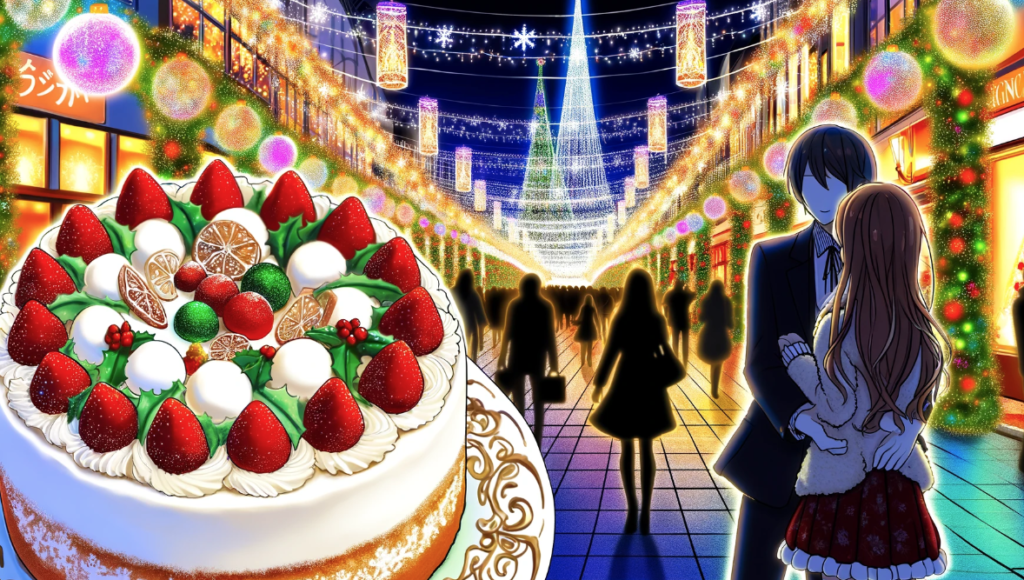
Lesson 29 Christmas and Valentine’s Day
No. 1: Introduction – First, try answering the question yourself.
The instructor will provide advice on vocabulary, grammar, and expression corrections.
Sample Answer -Let’s read aloud. Instructor will check your pronunciation and accent.
In Japan, Christmas is more of a secular celebration focused on romance, illuminations, and Christmas cakes rather than a religious holiday. Couples often go out for romantic dinners, and streets are adorned with elaborate light displays. Christmas Eve is especially seen as a night for romance, somewhat akin to Valentine’s Day in the West. Meanwhile, Valentine’s Day in Japan has a unique tradition where women give chocolates to men. There are two types of chocolates: “Giri-choco” (obligation chocolate) given to male colleagues and friends, and “Honmei-choco” (true love chocolate) for a boyfriend or husband. Men then reciprocate on White Day, March 14th, by giving gifts to the women who gave them chocolates.
No. 2: Vocabulary Building – 5 Words to Learn and Their Meanings
Pronounce the Words Correctly (Pronunciation Training) + Make Sentences Using the Words Instantly
- Secular (世俗的な, sezikutekina): Not subject to or bound by religious rule; not belonging to or living in a monastic or other order.
“Christmas in Japan is considered a secular holiday, with a focus on festivities rather than religious observance.”
- Illuminations (イルミネーション, irumine-shon): The lighting or lighting effects used in a decorative manner, especially to create festive or magical atmospheres.
“Major cities in Japan are known for their stunning illuminations during the Christmas season.”
- Giri-choco (義理チョコ): Chocolate given out of obligation on Valentine’s Day in Japan, typically to coworkers or friends.
“Many women in Japan prepare giri-choco for their colleagues as a gesture of goodwill on Valentine’s Day.”
- Honmei-choco (本命チョコ): Chocolate given to a loved one or someone for whom the giver has romantic feelings on Valentine’s Day in Japan.
“She spent hours making honmei-choco for her boyfriend, infusing it with her feelings of love.”
- Reciprocate (返礼する, henrei suru): Respond to a gesture or action by making a corresponding one.
“On White Day, men reciprocate the gesture of receiving chocolates by giving gifts to the women.”
No. 3: Key Idiom and Example Sentences
“The more, the merrier” (人が多ければ多いほど楽しい): Used to say that a situation is better if a lot of people are involved.
“The more, the merrier, as seen in Japan’s Christmas and Valentine’s Day celebrations, where sharing moments with friends or loved ones is highly valued.”
“During the holiday seasons, such as Christmas and Valentine’s Day, the saying ‘the more, the merrier’ truly comes to life in Japan, with people enjoying the company of others in festive atmospheres.”
No. 4: Discussion and Exchange of Opinions on the Sample Answer
Instructor: Reflecting on the sample answer, how do you think the celebration of Christmas and Valentine’s Day in Japan reflects broader aspects of Japanese culture and society?
Student: [Opinions of students]
No. 5: Free Discussion on the Topic
Let’s delve deeper into the cultural significance and evolution of Christmas and Valentine’s Day celebrations in Japan. How do these holidays compare to traditional Japanese festivals in terms of customs, food, and social interactions? Additionally, discuss how globalization might be influencing the way these Western holidays are celebrated in Japan and whether traditional aspects of Japanese culture are incorporated into these celebrations. What other unique holiday customs exist in Japan that reflect its cultural values and societal norms?







